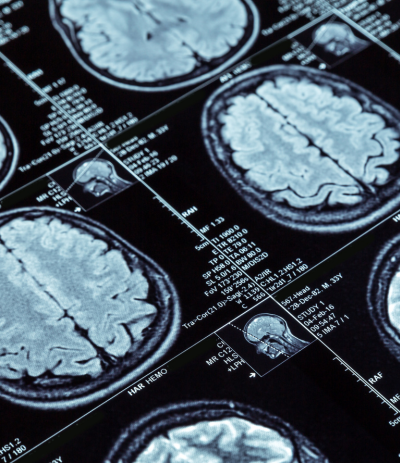nashville transcranial magnetic stimulation (TMS)
In combination with our innovative psychedelic and conventional therapy, Transcranial Magnetic Stimulation (TMS) provides an evidence-based, effective, and alternative treatment option for depression, anxiety, trauma, and OCD.
what is TMS?
Transcranial Magnetic Stimulation (TMS) is a non-invasive treatment that uses gentle magnetic fields to stimulate nerve cells in the brain that can lead to significant change in mood in day-to-day life. It is typically used to treat various mental health conditions, particularly depression, when other treatments have not been effective.
The subtle magnetic stimulation can help improve symptoms and quality of life by influencing the brain's neural activity, promoting the release of neurotransmitters, and enhancing neural connectivity.
TMS is considered safe and generally well-tolerated, with minimal-to-no side effects, making it a valuable option for patients seeking alternative or complementary treatments to traditional therapies.


who is a good candidate for TMS?
A good candidate for Transcranial Magnetic Stimulation (TMS) typically includes individuals who:
- Have Major Depressive Disorder (MDD): TMS is most used for patients with depression, especially those who have not responded adequately to other treatments such as antidepressant medications or psychotherapy. This is especially helpful for treatment-resistant depression.
- Experience Medication Intolerance: Patients who cannot tolerate the side effects of antidepressant medications or have medical conditions that limit the use of certain medications may be good candidates for TMS.
- Prefer Non-Invasive Treatments: TMS is a non-invasive procedure that does not require surgery, anesthesia, or sedation, making it an attractive option for those seeking less invasive treatments.
- Do Not Have Certain Medical Conditions: TMS is generally not recommended for individuals with a history of seizures, certain brain conditions, or those with implanted metal or electronic devices in their head or neck.

IS TMS FOR EVERYONE?
who is a good candidate for TMS?
A good candidate for Transcranial Magnetic Stimulation (TMS) typically includes individuals who:
- Have Major Depressive Disorder (MDD): TMS is most used for patients with depression, especially those who have not responded adequately to other treatments such as antidepressant medications or psychotherapy. This is especially helpful for treatment-resistant depression.
- Experience Medication Intolerance: Patients who cannot tolerate the side effects of antidepressant medications or have medical conditions that limit the use of certain medications may be good candidates for TMS.
- Prefer Non-Invasive Treatments: TMS is a non-invasive procedure that does not require surgery, anesthesia, or sedation, making it an attractive option for those seeking less invasive treatments.
- Do Not Have Certain Medical Conditions: TMS is generally not recommended for individuals with a history of seizures, certain brain conditions, or those with implanted metal or electronic devices in their head or neck.
how well does TMS work?
TMS has great outcomes, especially for working with depression. For depression, studies usually show around 60% of patients respond positively to TMS and experience a significant reduction in symptoms. Around 30-40% of those patients achieve full remission.
These figures reflect outcomes from standard protocols, typically involving daily sessions over several weeks. The efficacy can vary depending on factors such as the specific TMS device used, the frequency and intensity of the magnetic pulses, and the number of sessions administered.
TMS is considered effective, especially for individuals who have not found relief through other treatments, though response and remission rates can differ from one person to another. Ongoing research continues to refine TMS protocols and explore its applications for other mental health and neurological conditions.
TMS at Elument
- our process -
The process of Transcranial Magnetic Stimulation (TMS) therapy typically involves a series of sessions that follows a specific TMS protocol. After an initial evaluation and mapping completed by a psychiatrist, TMS sessions may begin.
What to Expect During a TMS Session
During each session, which lasts about 20-30 minutes, you’ll be seated comfortably with the TMS machine in the protocol position which will then deliver magnetic pulses to specific areas of the brain, usually the left dorsolateral prefrontal cortex, known to regulate mood. Clients can resume their regular activities immediately afterward.
How many sessions of TMS are needed to see results?
A typical course of TMS therapy involves daily sessions, five days a week, over four to six weeks. Regular monitoring and assessments are conducted to track the patient's progress and adjust treatment as needed.
find out if TMS is right for you.
To learn more about transcranial magnetic stimulation and find out if it’s right for you, schedule a free info session with our team.
